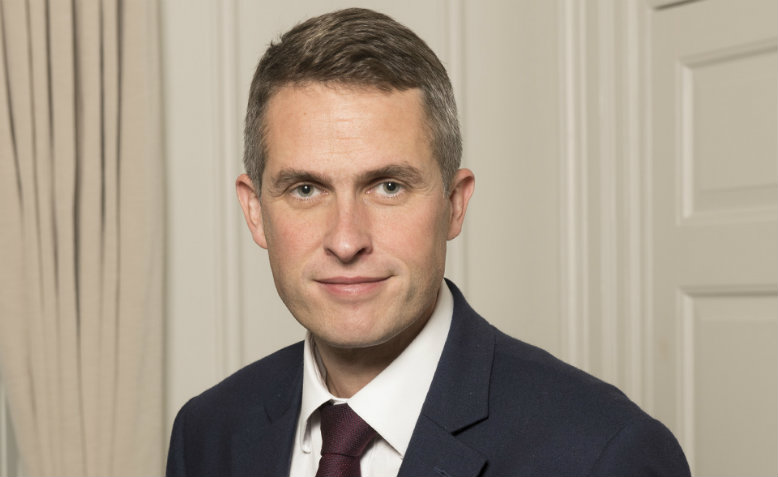 Gavin Williamson. Photo: Flickr/Number10
Gavin Williamson. Photo: Flickr/Number10
Gavin Williamson’s latest speech with jingoistic rhetoric and calling for more military spending shows just how out of touch with reality he is, argues Lindsey German
Gavin Williamson’s latest Churchill tribute act would be laughable were it not so dangerous. His speech on Monday is a deliberate ramping up of warmongering rhetoric which belies the reality of Britain’s military record and which can only increase tensions in an already dangerous world.
He argues that the West must be prepared to ‘use hard power to support our interests’, and that he wants to increase the ‘mass and lethality’ of Britain’s armed forces. It is quite incredible that he fails to address the consequences of past ‘mass and lethality’ of British hard power. The last decade has seen catastrophic and unpopular invasions and occupation in Afghanistan and Iraq, a bombing campaign in Libya which only exacerbated the conditions there, the continued bombing of Syria and Iraq. None has resulted in peace or democracy, and none has dealt with problems of terrorism.
Indeed, those problems remain and have intensified since the war on terror began in 2001. They have come at huge cost in human life and suffering, and at huge financial cost as well. In the years 2014-18 the cost of air weapons fired in Iraq and Syria alone was a staggering £305m. Williamson is part of a government presiding over damaging austerity, but constantly argues for more military spending to increase these damaging interventions. His warmongering may have more to do with his political ambitions than the actual reality, but it is dangerous nonetheless and should be opposed.
His proposal to take ‘action to oppose those who flout international law’ is laughable considering the UK’s recent record of doing exactly that. The plan to send the Queen Elizabeth aircraft carrier to the Pacific will be seen as a provocation to China, threatening to increase tension in the region.
Williamson loves to talk in grandiose terms about Britain’s role in the world, but the reality is not only these failed interventions but also military capabilities which depend for any success on alliance with the US. The continued insistence on keeping nuclear weapons may keep Britain’s seat as a permanent member of the UN security council, but it is of no benefit to British people, who are paying for a hugely expensive and dangerous system.
He talks about Nato as the bastion of British defence but this body has been leading the call for stronger military interventions, has expanded to take in most of the states bordering Russia, where extensive manoeuvres take place, and which lobbies for higher levels of defence spending in its member states.
Britain’s military role is a hangover from its imperial past. Williamson talks of restoring a British base in the Pacific, when prime minister Harold Wilson abandoned bases east of Suez back in the 1960s. The delusion that Brexit will restore some of that past, as Williamson seems to suggest, is just that – a delusion. But the danger is that he and his colleagues will use this rhetoric to increase militarism and pro-war sentiment.
And with Donald Trump tearing up treaties over nuclear weapons, threatening Iran and intervening in Venezuela, these are indeed dangerous times. In this respect, we need more from Labour than Shadow Defence Secretary Nia Griffiths’ plea that he should reverse spending cuts in the Ministry of Defence. Instead, we need a foreign policy which promotes peace not war, and which tells the truth about Britain’s recent interventions.

